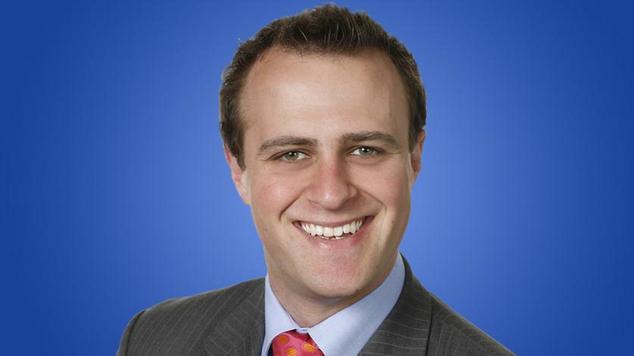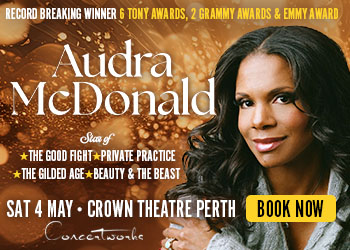
The Human Rights Commission has revealed the results of its investigation of issues facing LGBTIQ people in Australia in an extensive report entitled ‘Resilient Individuals: Sexual Orientation, Gender Identity and Intersex Rights 2015’.
Human Rights Commissioner Tim Wilson conducted the research as a means to identify the “many other systemic issues and human rights challenges that urgently need to be addressed” in the LGBTI community and ensure these issues are made visible to the wider community and seek reform to alleviate discrimination.
Commissioner Tim Wilson spoke to OUTinPerth about what he learned through the consultation.
You’ve been around Australia talking to LGBTIQ people, is there a difference in what people’s stories were?
Yes there was a difference in the stories, of course if you go into inner city areas especially on the Eastern sea board you get stories that are very different from regional, rural and remote communities, particularly when you’re dealing with intersections of other forms of social prejudice, say for instance, Aboriginal Australians, but the fundamental themes were consistent.
The need for the law to treat everybody equally, to make sure people are able to access basic services such as health and education and to make sure there is no discrimination or gaps in knowledge from social service workers to provide for people with LGBTI needs.
We often hear, especially in the marriage debate, that there is no discrimination against gay and lesbian people in Australia, but your report would suggest that, on the ground, there is still a significant amount.
The report goes through a survey and publishes the data of that survey which shows that about 70% of people say they’ve faced some form of bullying, harassment or violence on the basis of their sexual orientation, gender identity or intersex status, as well as a significant number of people who have faced some form of social exclusion or lack of access to basic services.
That would be throughout their lifetime, so we have to acknowledge that hopefully things are slowly getting better, but there’s still a way to go. At least because, things like anti-discrimination laws cover issues like sexual orientation in some states, but not gender identity or intersex status and there’s also still state sanctioned discrimination in the marriage act which is a headline issue and if you go to Queensland there’s still unequal age of consent between heterosexual and homosexual sex.
It’s surprising that Queensland is still behind the other states.
Well, there are lots of different laws where there’s inconsistency between the states but I think you’d have to say that Queensland’s issues are probably the most concerning. When you’re dealing with something like an unequal age of consent, between the age of sixteen and eighteen, is dissuades and discourages young gay men to go and get tested for HIV, blood borne viruses or STIs and of course that has an impact on the individual, as well as public health… so I think that’s a law that needs to change, it needs to change quickly, it makes sense, every other state has done it, the idea that these things are controversial, or maybe insignificant, I think is really quite silly and that’s why states should focus on addressing those issues and getting them out of the way.
As you said our experiences are throughout our lives, in the data is there a generational story that younger people are experiencing less discrimination?
Well we haven’t got that in terms of data, but certainly we’ve heard that in terms of personal stories. There’s actually lots of room for optimism if you go into schools, as I did, and talk to kids about these issues it seems increasingly that nobody seems to mind or care. I remember I was at a school in Western Australia and talking about the challenges of transgender people and they all shrugged their shoulders, pointed to the back of the room and said “yeah, Bill is transgender” and that was the beginning of the end of the matter. So there’s huge progress that’s been made, but you can’t ignore past experiences and the consequences of them. That’s why the expungement of past homosexual criminal offences in Victoria and New South Wales is important and it needs to be done in every other state including WA.
The report does touch on some of the more controversial elements of LGBTI rights, the Chaplaincy programme is often in the news. There’s quite a few stories coming from youth saying they don’t feel comfortable approaching chaplains. Do you have a take on whether that should be opened up to secular workers as well?
I think if you’re going to have a discussion about the need for secular social service workers or counsellors then that should be held entirely different to chaplains. They fulfil a very different pastoral role, I accept that people have concerns about those chaplains and whether they’re open and accessible to LGBTI youth and I’ve heard many stories about that. What we’d recommend is a review of the chaplaincy program in two years’ time to assess whether there’s actually any formal complaints or whether it’s just conjectural concern, but if you want to have counsellors in schools I think we should separate the two.
The balance of religious freedom, obviously it comes up in the chaplaincy debate, and the marriage equality debate. On the ABC’s ‘Q&A’ recently someone asked if they had a business, can they discriminate, to most people that would seem a very clear “No, you can’t”.
Human rights are not about forcing people to act against their conscience, so my view, and the way we’ve addressed it in the report, because it is a real concern for people of religious conviction or faith, is that they’ll be forced to act against their conscience and do things they don’t agree with.
There are limits, and we’re going to be setting up a religious freedom round table to be talking about the broad issues that affect religious freedom in Australia, because this is one issue but it’s obviously not the sole issue, to try and have a proper engagement and get to the bottom of what it is people don’t want to do, and then see if we can craft or propose solutions that respect the basic and equal treatment in law for LGBTI Australians while also making sure the religious freedom be preserved. I’m more interested in finding a solution that zero sum arguments.
If you look at this as a broader issue though, would it be okay to say you could discriminate against race or gender or age based on a religious belief?
This is precisely the point, discrimination is a funny word we use in our society because we use it always in a negative sense when in fact we all discriminate regularly, and there can be entirely justifiable reasons for doing so and some other things that are part of our freedoms may be unjust, and this is why I want to get to the nub of the point and the nub of the issue, I don’t really accept that a baker who doesn’t want to bake a cake for a marriage between a same-sex couple is really a violation of their religious beliefs, fact is they don’t endorse all weddings they’ve ever made a cake for.
I think it’s a more interesting discussion when you get to, say, a civil celebrant who might have a private religious conviction and whether they should have to marry a same-sex couple and is it fair to stop somebody becoming a civil celebrant because they have that religious conviction. There can be discrimination then.
The report also touches on some of things that we don’t talk about, domestic violence really stood out.
We have very few discussions on this topic, do you think there’s a need for more health campaigns in the area – we don’t see rape campaigns directed at men or domestic violence campaigns directed at the gay and lesbian community. Should we have them or is it not a big enough cohort of people?
I think the answer is broadly yes, but we need to get to the bottom of how extensive the problem is. I’ve seen reports recently that highlight it’s proportionate to the rest of the population and that there are unique issue of domestic violence, particularly in same-sex relationships, take for instance, when the relationship has broken down and one partner is a victim of physical violence but they won’t leave their partner because they’re worried that they might disclose their HIV status to other people to people which it may currently be secret so there are serious issues at play here, but I think we need to understand it better because the reality is it isn’t anywhere near the degree of research or understanding to appreciate and decide how to respond to it.
One of the key recommendations of the report was to focus, not just on these issues, but on violence against LGBTI people in general, violence against trans people seems to be particularly high but we need reliable and credible data and understanding so that we can respond to it.
The report also said that trans people do much better psychologically/socially when they have access to health treatment and surgical procedures which are not currently covered by govt subsidy or Medicare.
Do you think there’s a point in the future where this will change? We see so many trans people moving overseas for surgery, which in some cases would increase risk.
Everything involves risk, but obviously if you go to foreign countries and engage in medical procedures it can further certain risk profiles and it means it creates a disparity between those who can and cannot. One of the key recommendations is to look at a trans health stream in the Health Sector to properly discuss and address these issues because a large part of the health system… is very gendered and is designed around people’s gender, which isn’t always a bad thing as obviously there are specific issues when it comes to a woman’s health for example.
A trans person in that system may not be accommodated because of where they are in the transition process. How is it that we address trans issues and make sure that trans people can get assistance. Not just surgery but also hormone treatment and support, we’re looking at the whole spectrum. We also need to get to the bottom of the skills and qualifications of practitioners. It’s one thing to get people on the Medicare system, but if there aren’t people to do the surgery then we have another problem.
Read Tim Wilson’s full report at the Human Rights Commission website.
Graeme Watson





